

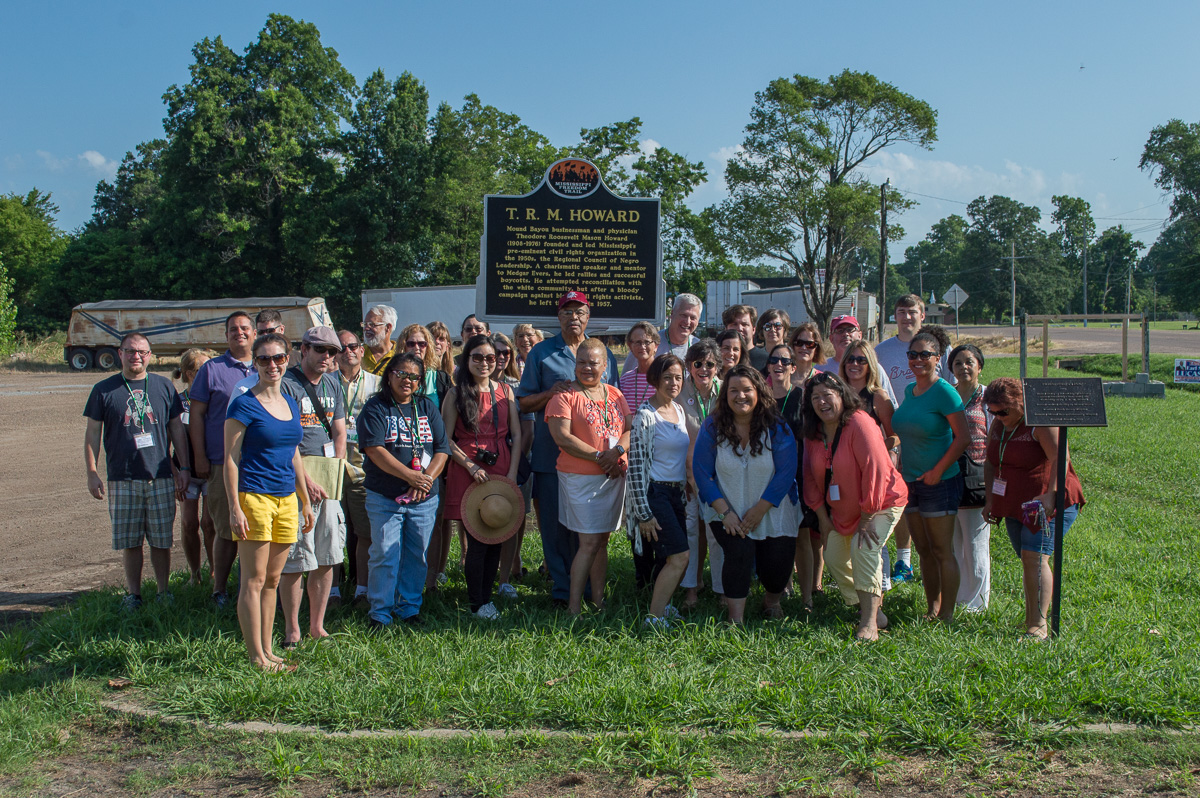
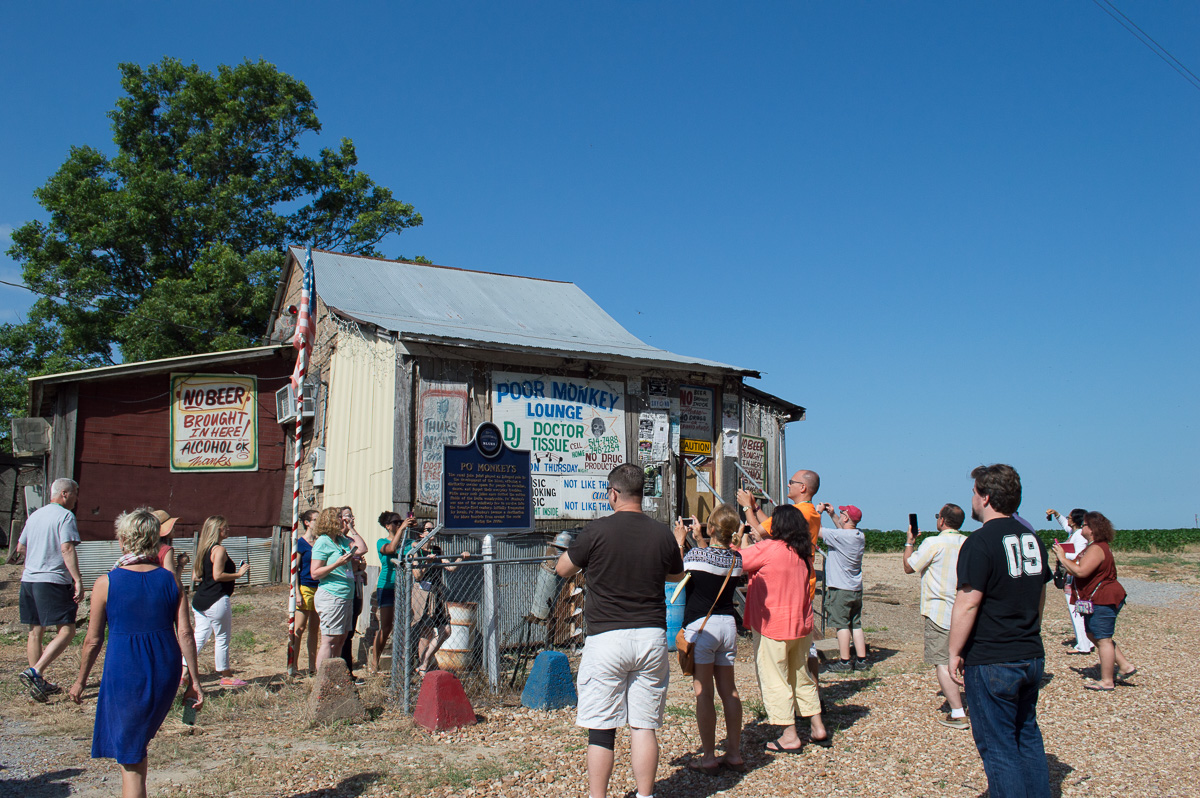
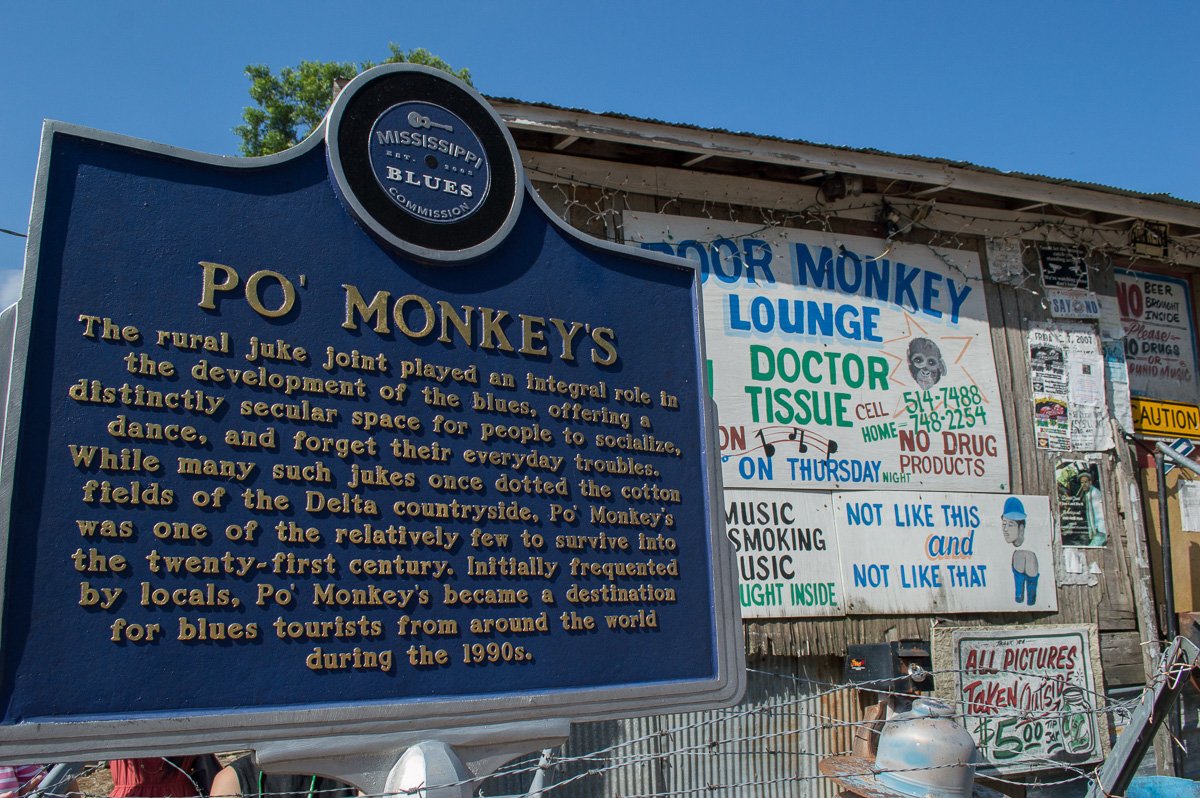
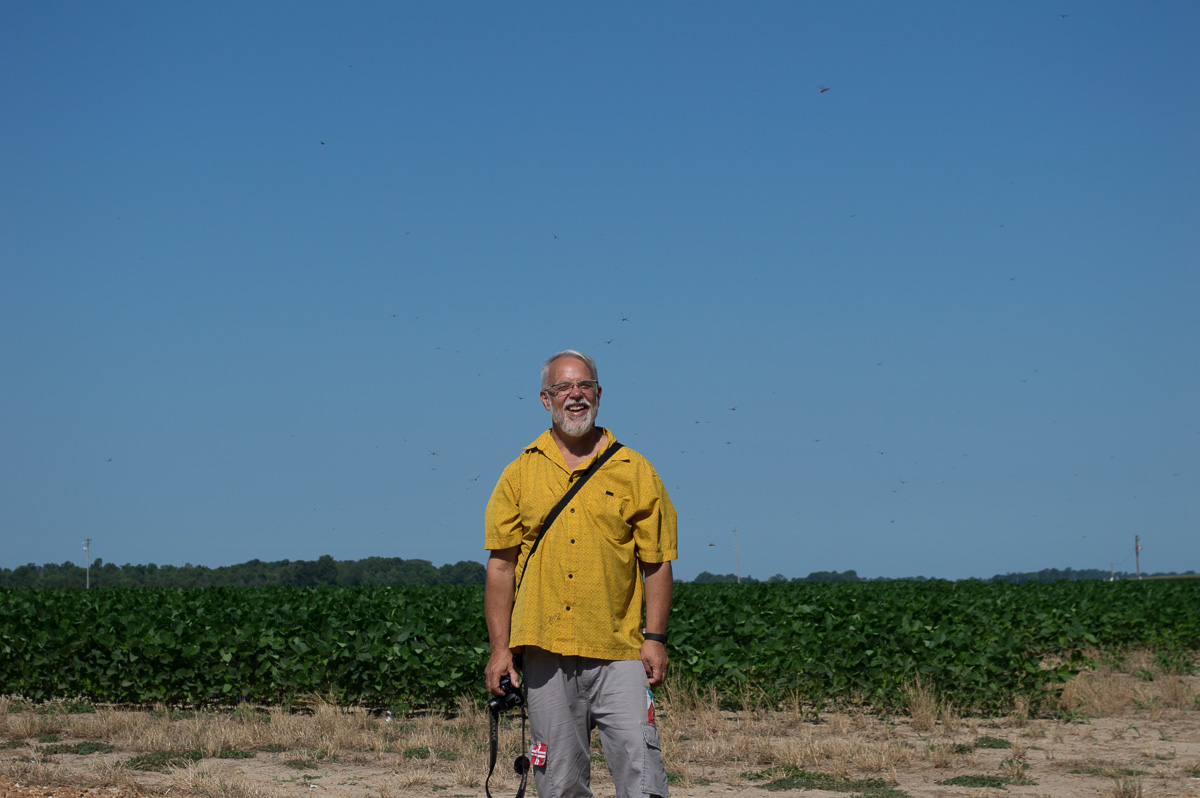

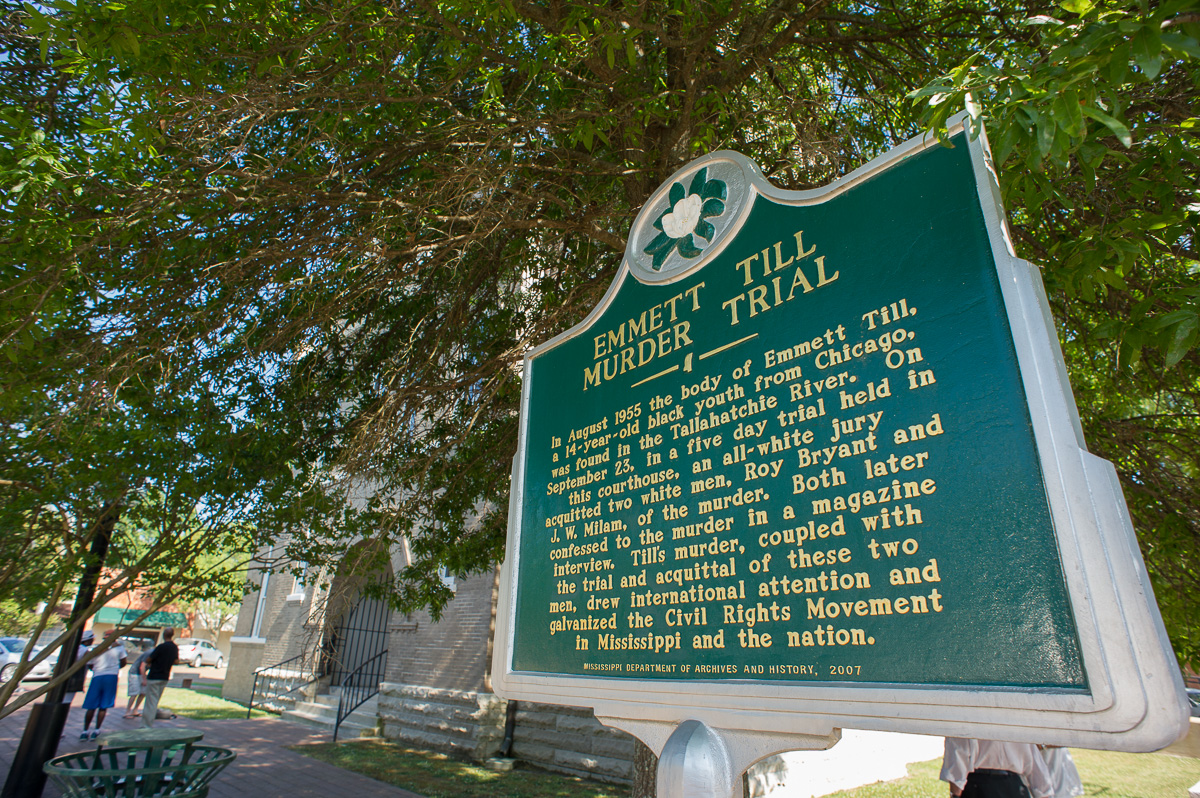
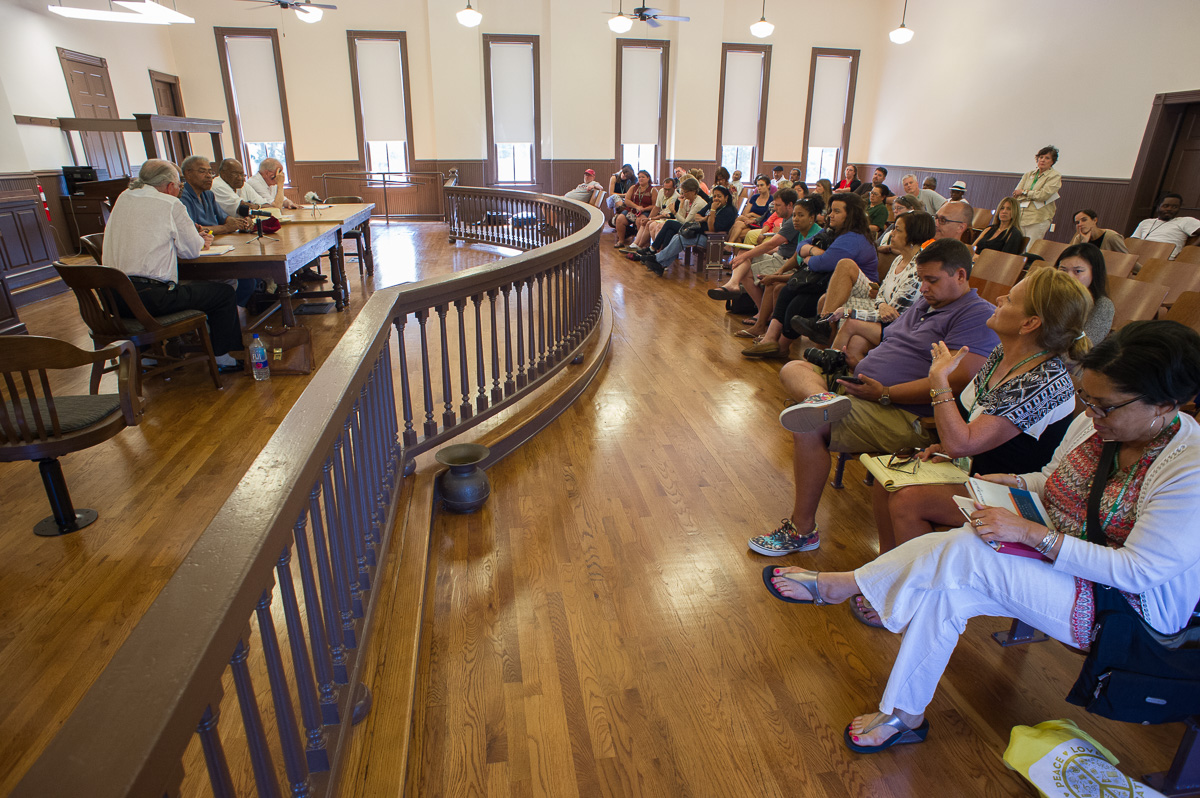


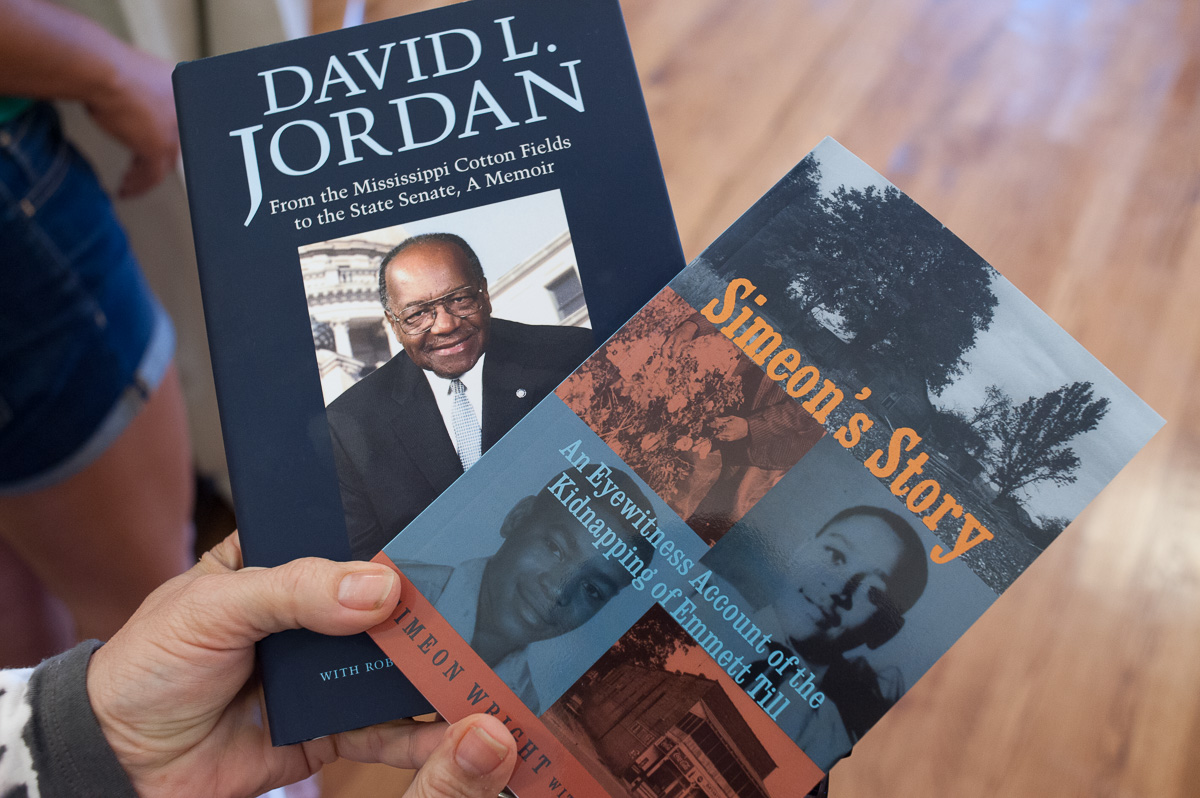

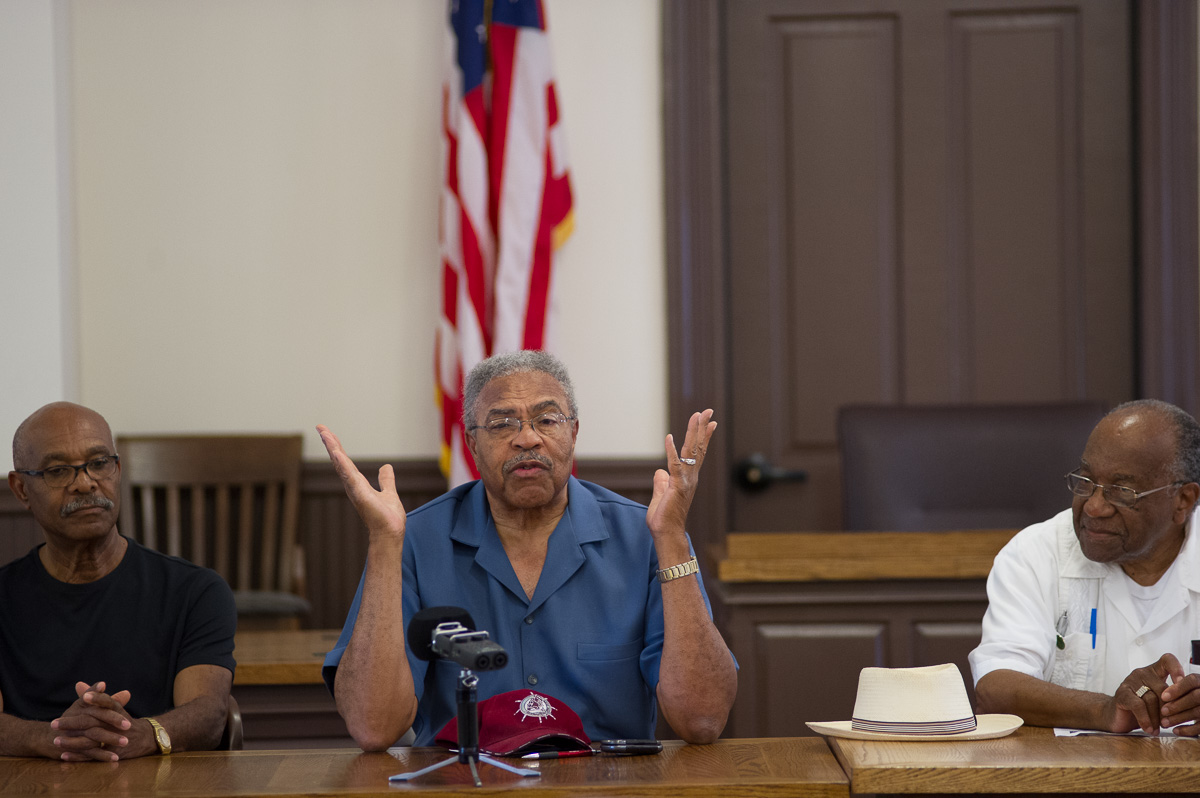
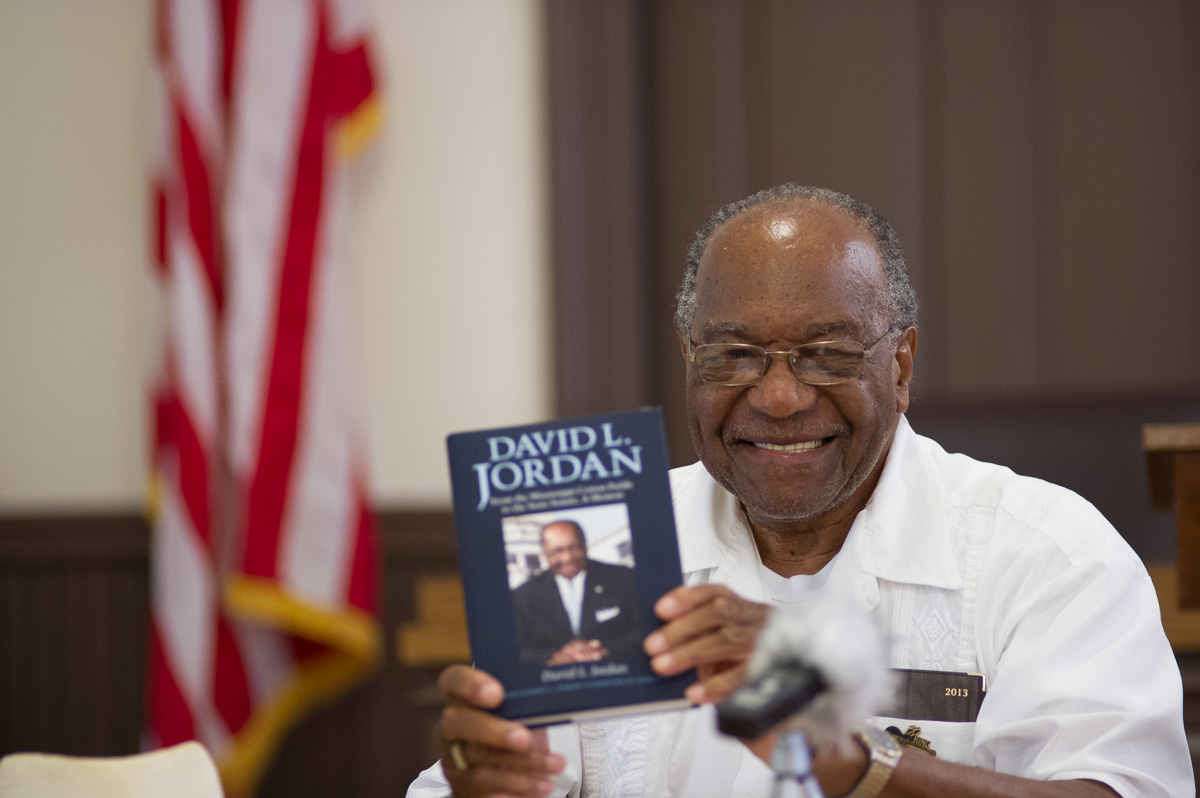
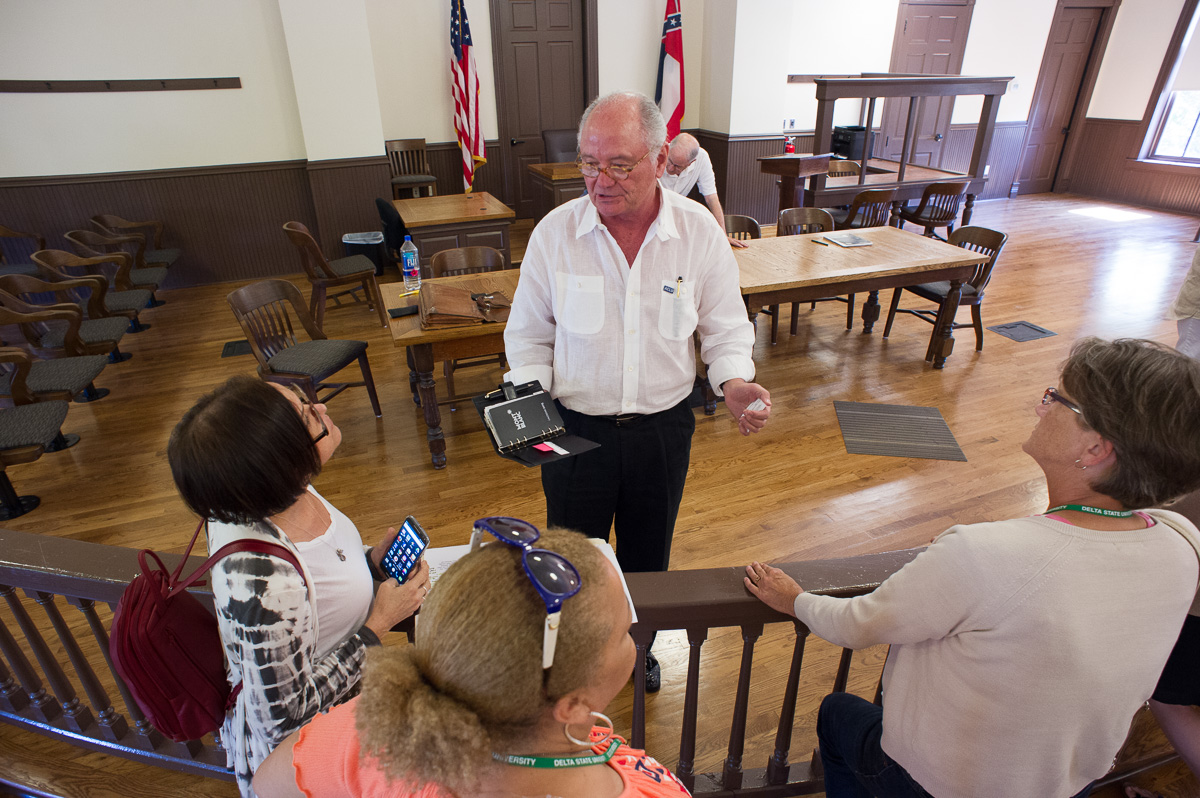
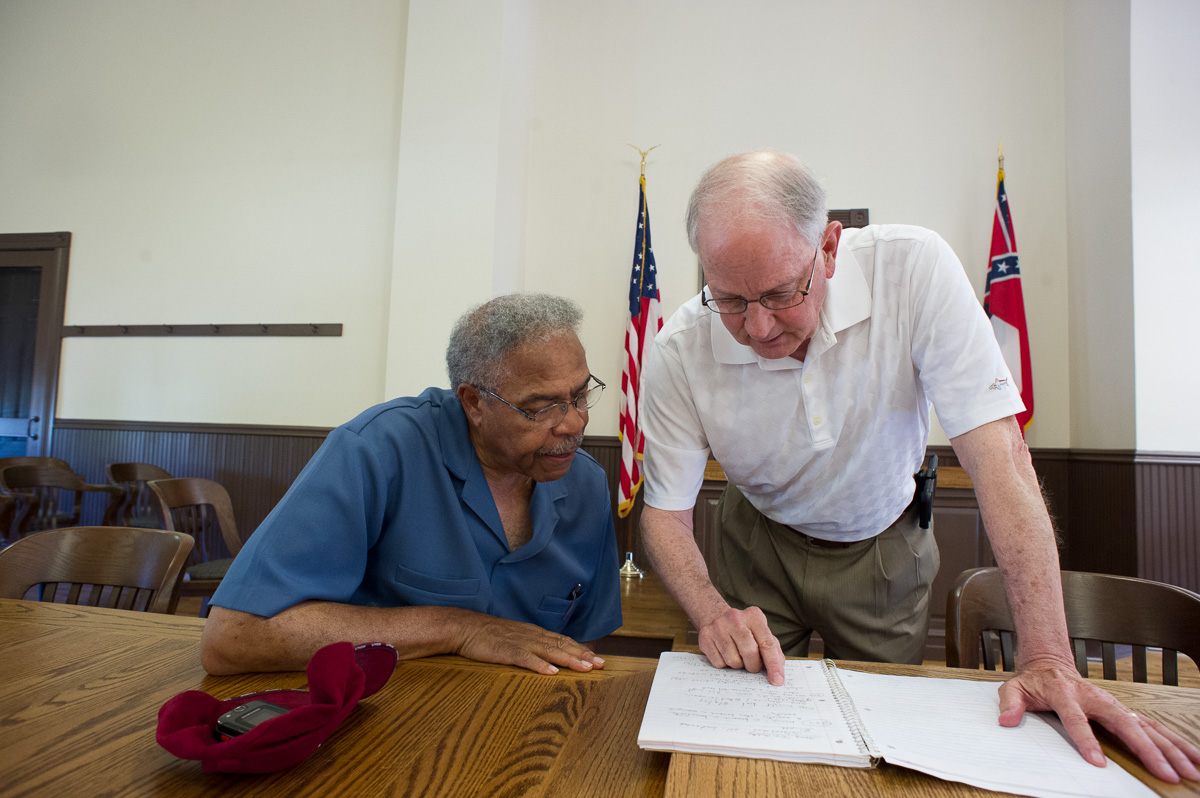






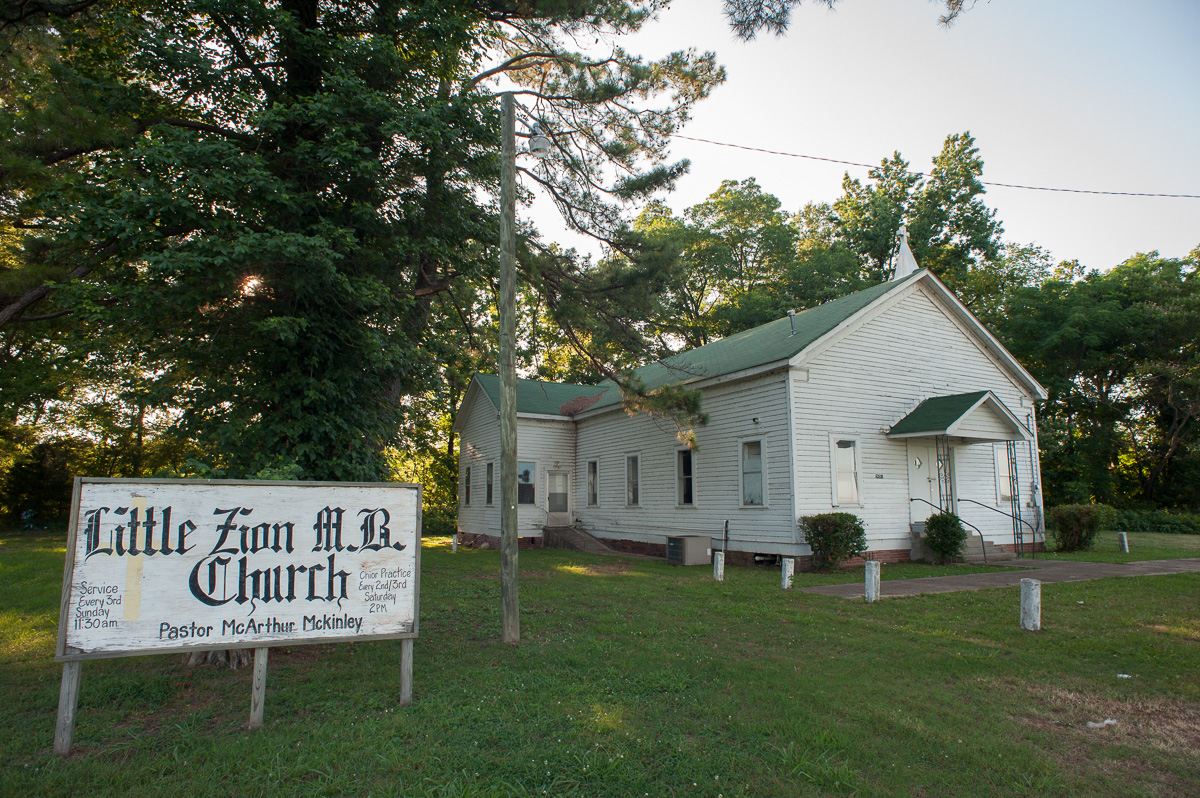



Today was a powerful day. The morning began with a trip to Mound Bayou, the Mississippi's first all black town, and a key community during the Civil Rights era. On the way back to Cleveland, the group stopped by Po' Monkey's Lounge and upon returning to campus engaged in lecture by Charles McLaurin, who worked closely with Medgar Evers. The afternoon began in the Sumner courthouse with a panel discussion on Emmett Till. The afternoon wrapped up with a trip to Bryant's Grocery in Money, and Little Zion Missionary Baptist Church outside Greenwood, one of the three grave sites for legendary bluesman Robert Johnson. After a short break for dinner, the group returned to Po' Monkey's for an evening of music and dancing at Willie Seaberry's juke joint.







